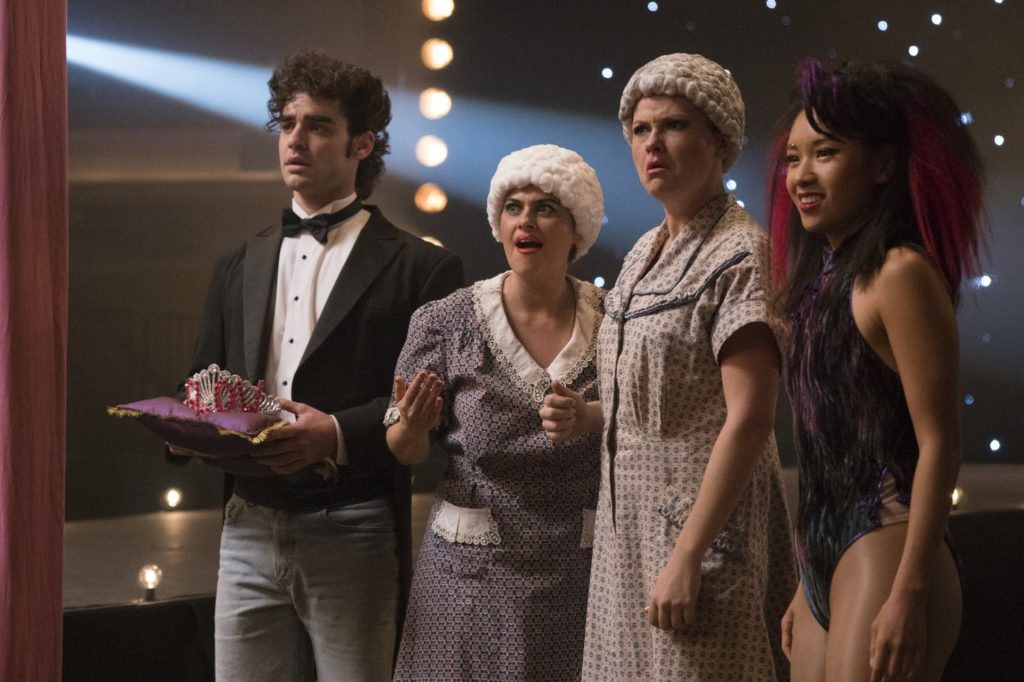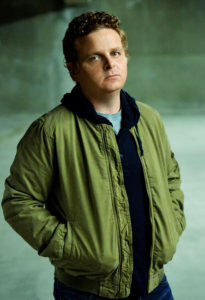
Disclaimer: This feature has the potential to make you feel older than you did prior to reading it.
It’s been 25 years since “The Sandlot” took us out to the ballgame. When it was first released in 1993, the feel-good film about a group of ragtag friends and their summer misadventures played our nostalgic soft spot like a baseball organ, but two and a half decades later it’s striking an entirely different sentimental chord… and it’s knocking us right out of the park!
We recently sat down with “The Sandlot” star Patrick Renna to discuss the reason the film is so special, what he remembers most about the experience, and why a group of gorgeous ladies of wrestling took up calling him Cupcake.
TrunkSpace: When you first stepped foot on “The Sandlot” set some 25 years ago, could you have ever possibly imagined that you’d still be talking about it now, all these years later?
Renna: No, I don’t think so. When we filmed it… you can always tell when something is good, you know? I’m pretty sure everything I’ve ever worked on, everyone is super pumped about it, but you can get a real feel of when it’s turning out really good, but no way do you get the idea that it’s gonna mean as much as it has for people as “The Sandlot” has.
TrunkSpace: The film was nostalgic to viewers at the time of its release just in the way the story was told, and now it’s nostalgic to people for an entirely different reason, which is pretty cool.
Renna: Oh, completely. I think what it is is generally the people that watched it in that age range of 10-20, when it came out, are now, you know, in the 25-40 range now, and they have kids, so, they’re showing it to their kids now.
TrunkSpace: If you just look at all of the other movies that came out that year, and how few of them resonated with people in the way that “The Sandlot” has – that’s a feat to have pulled that off.
Renna: It’s true. It’s great, and it’s really special to be part of something like that, and its humbling, because that’s why we do what we do. Most – and I would say even the people that you think are doing it just for the limelight – everyone does this job because they want to create a character, and be part of a film that means something to people. So, when you’re able to do that, it’s pretty special.
TrunkSpace: The film is a bit of a snapshot in time for people who grew up loving it. Do you find that fans have a hard time accepting that you’re no longer the kid they remember?
Renna: Yeah, I think sometimes people do. With me, and I hear it a lot, is that I look exactly the same. So, I think that’s probably an easier transition a little bit. Obviously I look the same, but 25 years older. I’m a character actor, and I have the red curly hair and the freckles, and so I think that eases that transition a bit.
We posted that photo of all of us together after 25 years because it’s the first time… and I think people generally liked it, but I think they’re probably, “Oh my gosh!” It’s making people feel old, you know?
TrunkSpace: Well that’s probably because one of you guys got jacked!
Renna: Yeah. That’s me. I look the same, see? (Laughter)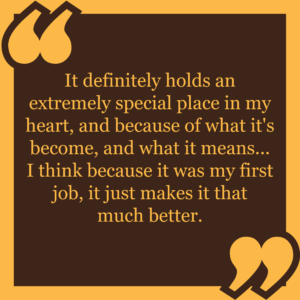
That’s Marty (York). Marty hit the gym a bit. He’s pretty ripped. He just posted a picture of him in a doctors uniform and it’s just been too much. We all give him a hard time. We all take shots about how buff he is, and then he looks at us and goes, “Hey, you guys could do it too.” “Yeah, screw you, man.” (Laughter)
TrunkSpace: For the end user, the audience, the finished film is usually the most memorable aspect of any project. But for the actors, it’s probably the memories – the experience. What did you take from your “The Sandlot” experience that you’ll carry with you throughout the rest of your life?
Renna: Well, I think what you take with you is the good and the bad, you know? You’re there, you’re in the summer, you’re in the heat. The good is that you’re just playing baseball and having a great time, but you are also on a film shoot, and it’s crunch time. You’re there with a bunch of adults who, this is their livelihood. You need to make a good film. So, it was a great learning experience, but yeah, I would say the things that I remember the most are almost immediately before scenes or immediately after.
We all shared this giant trailer and we all had our little section. I got a knock on my door that morning, and it was… I don’t even think it was David (Mickey Evans), I think he had someone come bring me a script, and they said, “David wants you to do this scene now.” And it was that morning, and the scene was the trash-talking scene on our field between the opposite team – the famous scene where we go back and forth. Originally it was supposed to be Benny to do that scene, but we were far enough along in the film that I think our characters kind of fleshed out, and Benny had really become a sort of legend kind of thing, and legends don’t do that. Derek Jeter is not. Maybe he is behind the scenes, but in front of it he’s more of the classy guy, and so I think he went, “Wow, this is Ham. This is Ham material.” So, I did that, and that’s what I remember most about that scene.
And then I remember the following scene, where I’m in the backstop and talking trash to each of the batters that come up. The way we filmed that is Dave, the director, was in the dugout and he had a bullhorn, and he just kept the film rolling. And this is 1992, so it was film. It was not digital, it was very expensive Kodak film, and this was not a 100 million dollar budget. He just let it roll, and I’m sure it cost a fortune that day, but he, on the bullhorn, improved lines to me. He’d say, “Say this…” and the whole cast and crew would start cracking up. And he’d go, “Okay, okay, okay, say it…” and I’d go, “Really?” All while we’re rolling. And then I’d say it, and then whichever one he liked made it in the film.
I’d love to see the outtakes that didn’t make it, because I’m sure there’s tons of insults that didn’t make it.
TrunkSpace: We talked about the film’s staying power, but the famous line that you delivered has its share of shelf life too. When you said it – “You’re killing me, Smalls” – did it feel like a line that would become a part of the pop culture lexicon?
Renna: I don’t think I knew or anyone knew that that line would become what it has become. Which, also, because I haven’t seen Tom Guiry for 25 years, until I saw him this past month, I was most excited – no, I don’t want to say most excited, but I was extra excited to see him, because of that line. I’m sure he’s grown up with it, and I’ve grown up with it, and he’s Smalls. I hung out with Chauncey (Leopardi) over the years, and we’ve remained good friends, but I hadn’t seen him so it was kind of extra special to see him because of that line. But no, I don’t think there was any way that we knew that line was gonna take off like that.
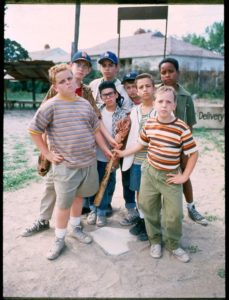 TrunkSpace: What are you most proud of in your career?
TrunkSpace: What are you most proud of in your career?
Renna: I think for anyone the first job is, and that was basically what “The Sandlot” was. It definitely holds an extremely special place in my heart, and because of what it’s become, and what it means… I think because it was my first job, it just makes it that much better.
The other ones that stick with me are the ones that are popular to people. I filmed an episode of “The X-Files,” which people seem to really like, and it was only a month of my life. Since then I’ve talked to so many people about it though, so it adds to it, and makes it more special over time. You know, projects that I’ve work on that maybe aren’t quite as special, they sort of… you forget about them a little bit. A couple years back I produced and acted in my first movie, and did it with a couple friends of mine, and we put the whole budget together, and produced, directed, and wrote it. All four of us did every aspect of it. It was called “Bad Roomies,” and that was a really special one too, just because I was on both sides of the camera.
And then I think, the latest job you work on is the most special because it’s so recent, and that would be “GLOW.” I just did a multiple episode arc on that show, on Season 2, and I’m pretty excited for it to come out.
TrunkSpace: We’re big fans of that series and pumped to get back into the ring with the Gorgeous Ladies of Wrestling. Where does your character fall into things? He’s a super fan, right?
Renna: Well, you know, they’re pretty tight-lipped about storylines, so I’m kind of not allowed to say much. There’s some cool stuff that happens, and it would definitely give it away, so I guess I’m only allowed to say I’m a super fan.
TrunkSpace: Your character’s name is Cupcake, which we have to say, is a great name.
Renna: Yeah, and it so funny because while I was on set with the girls, no one called me Patrick. It just became this thing of, “Cupcake.” Because how do you not? And I kind of loved it. I had a bunch of beautiful ladies, gorgeous ladies of wrestling, all calling me Cupcake all day long. So, it was perfect.
Season 2 of “GLOW” premieres June 29 on Netflix.


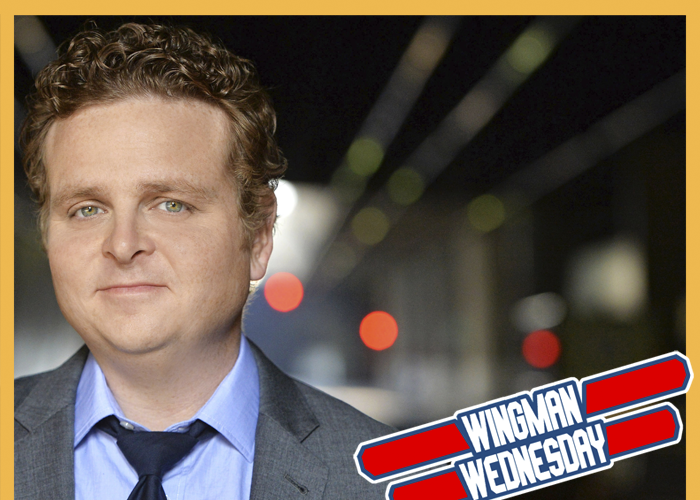
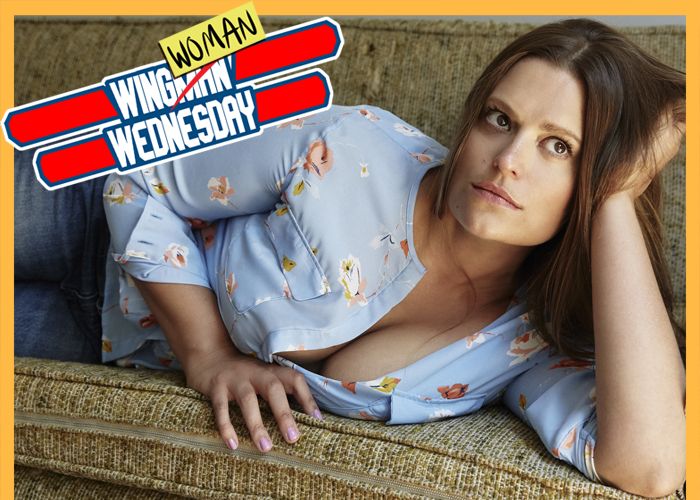
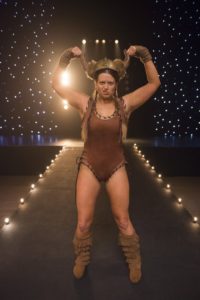
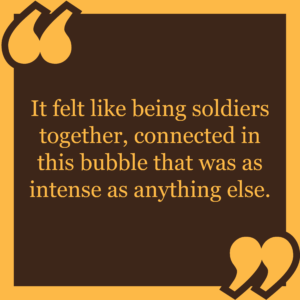 particular format as your vision? Do you make them for the big screen?
particular format as your vision? Do you make them for the big screen?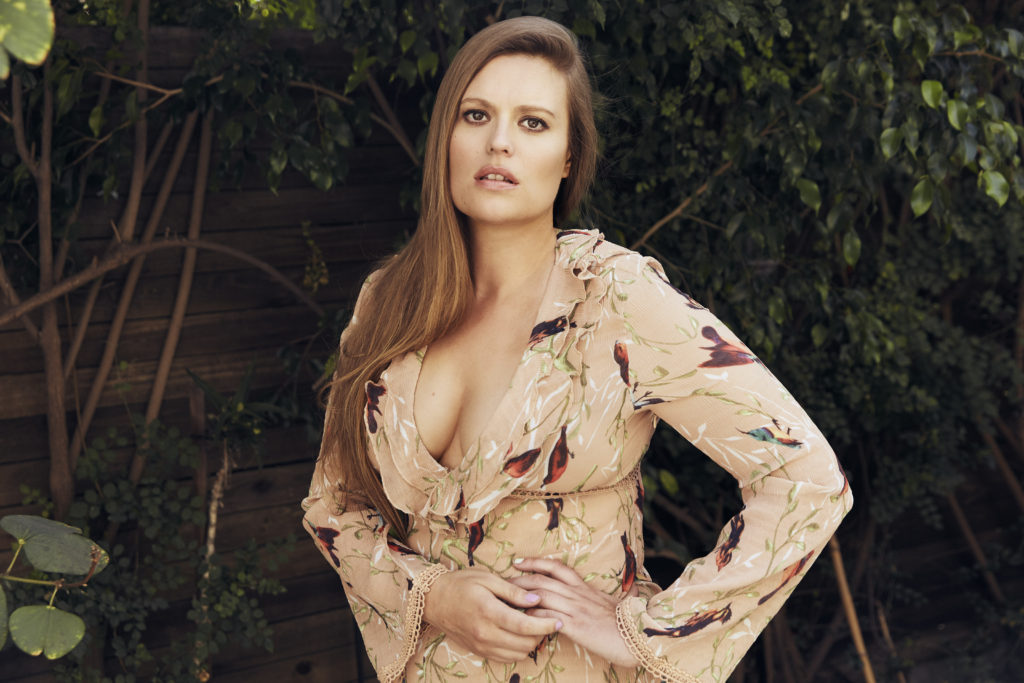
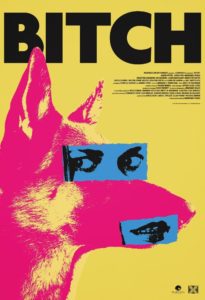 TrunkSpace: And it could have gone in a completely different direction had the tone been different. There’s a version of this show that would have existed 10 years ago that was all slapstick with someone like Will Ferrell playing the Marc Maron character.
TrunkSpace: And it could have gone in a completely different direction had the tone been different. There’s a version of this show that would have existed 10 years ago that was all slapstick with someone like Will Ferrell playing the Marc Maron character.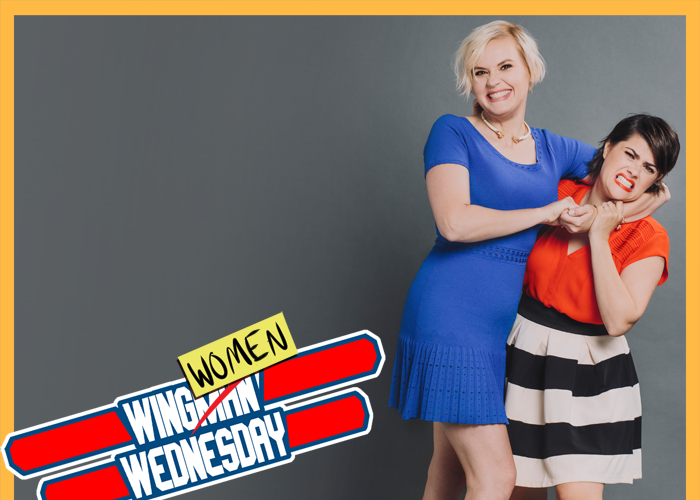
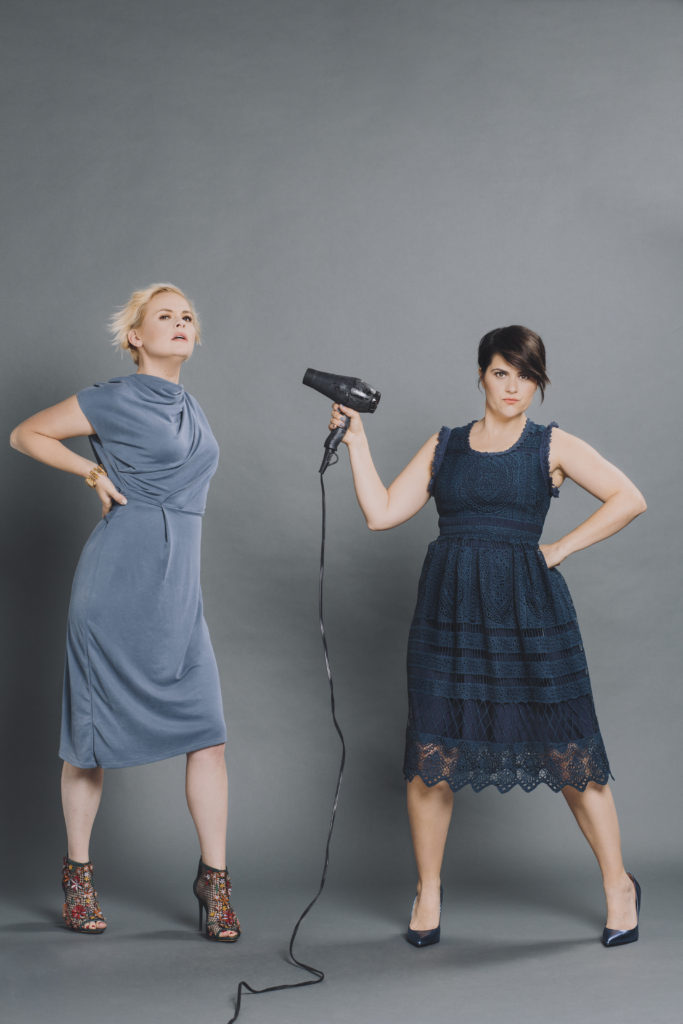
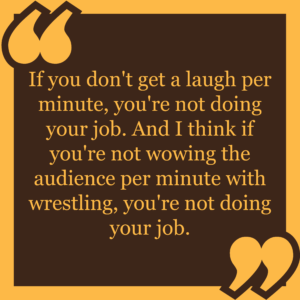 such a cool thing to be a part of. I hope it inspires and encourages more women to tell female-driven stories and to tell their own stories.
such a cool thing to be a part of. I hope it inspires and encourages more women to tell female-driven stories and to tell their own stories.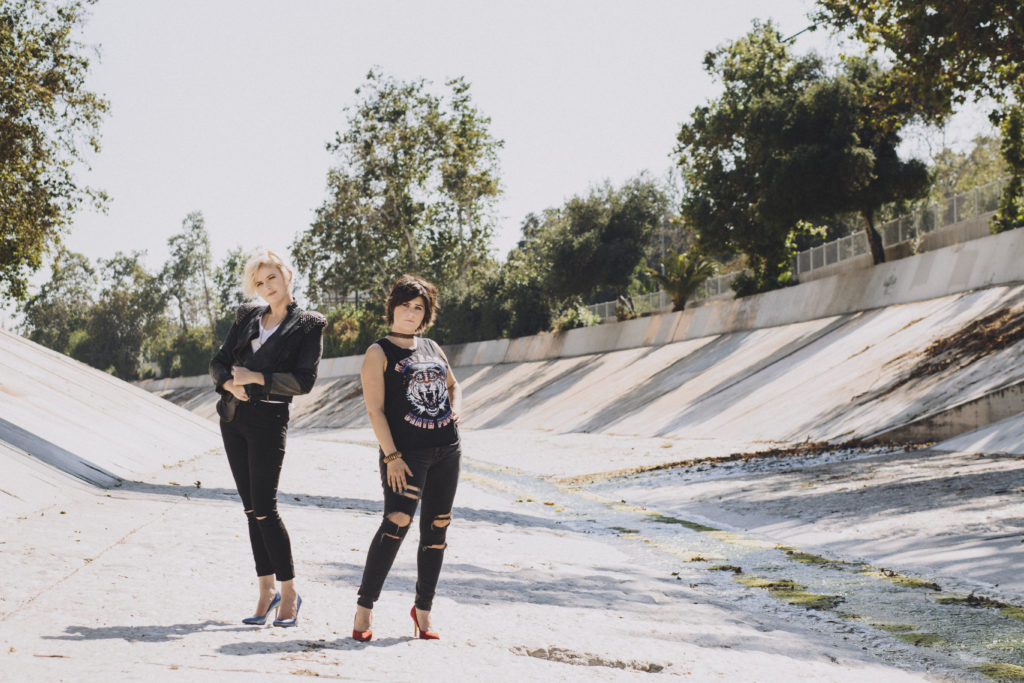
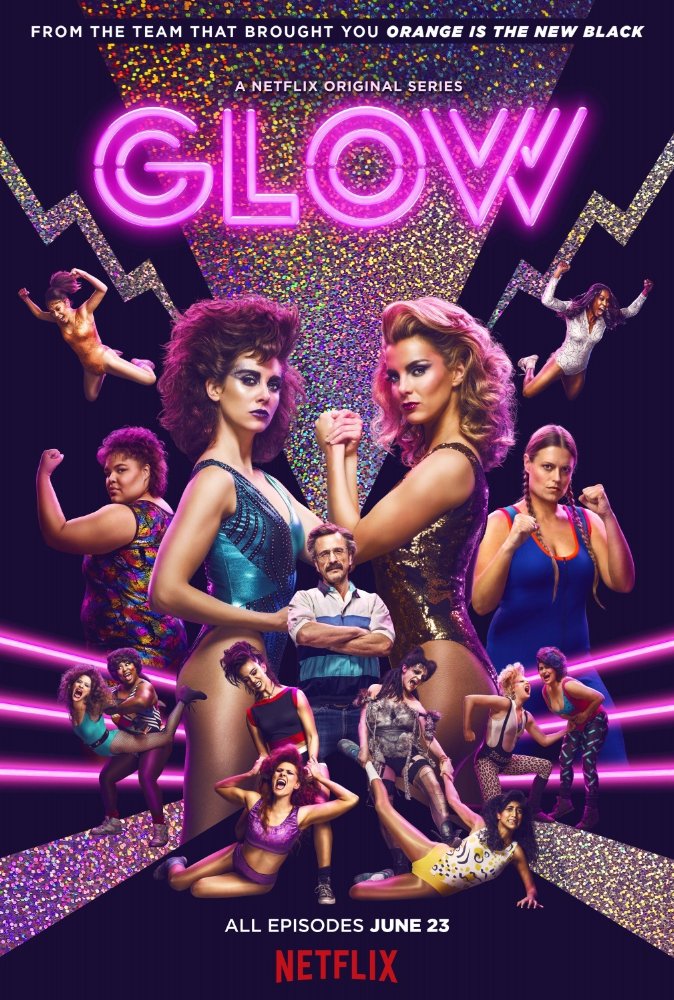 TrunkSpace
TrunkSpace